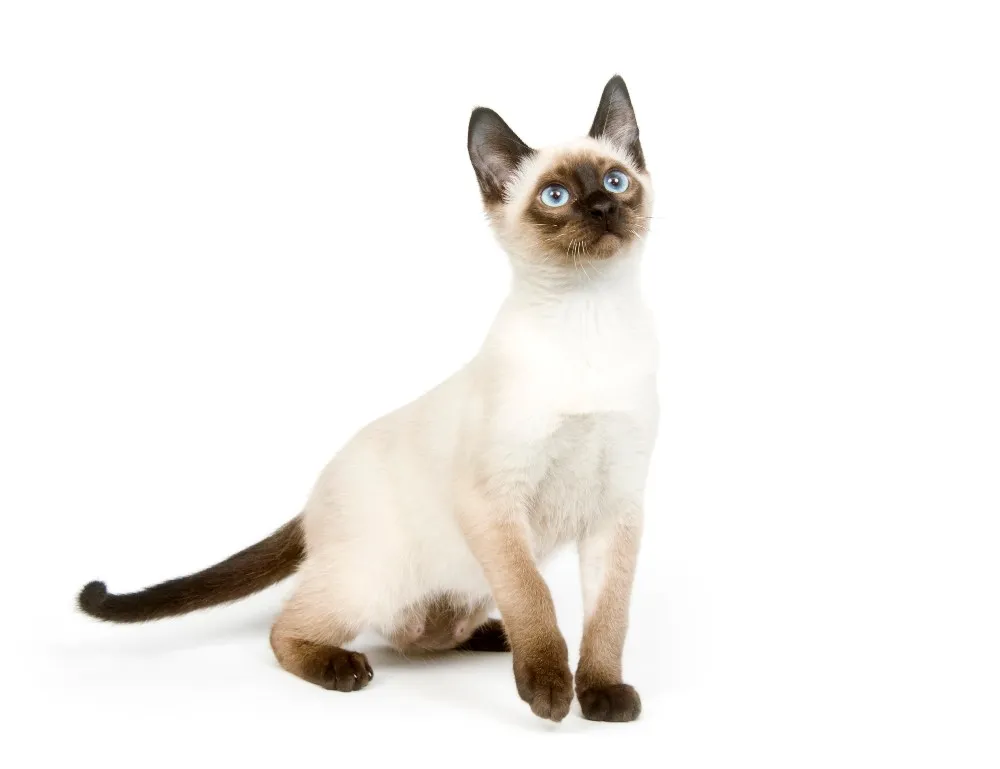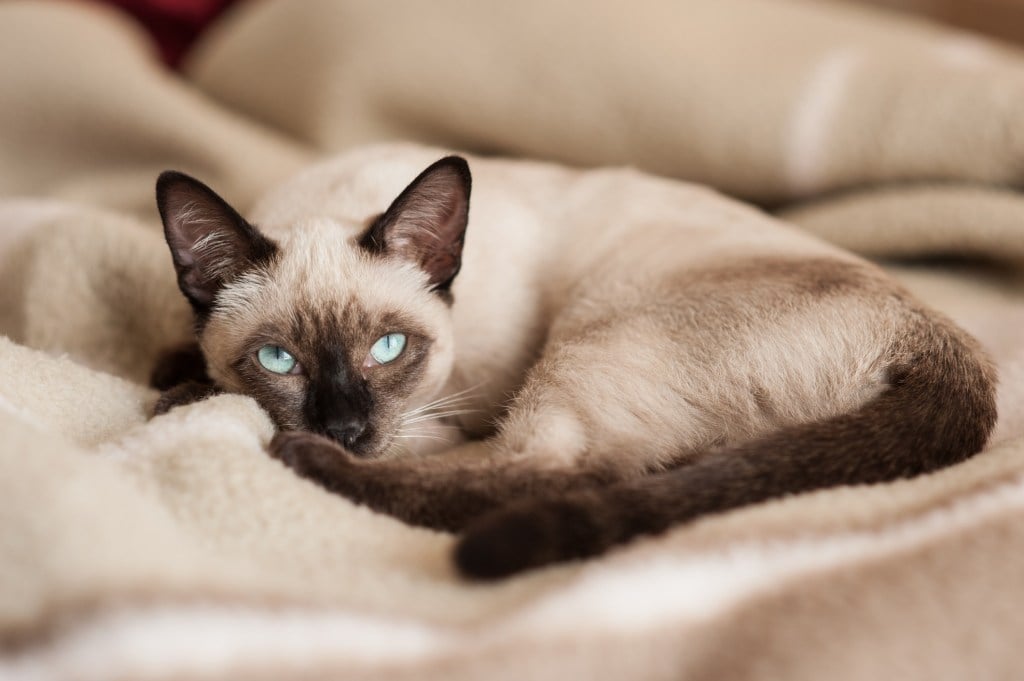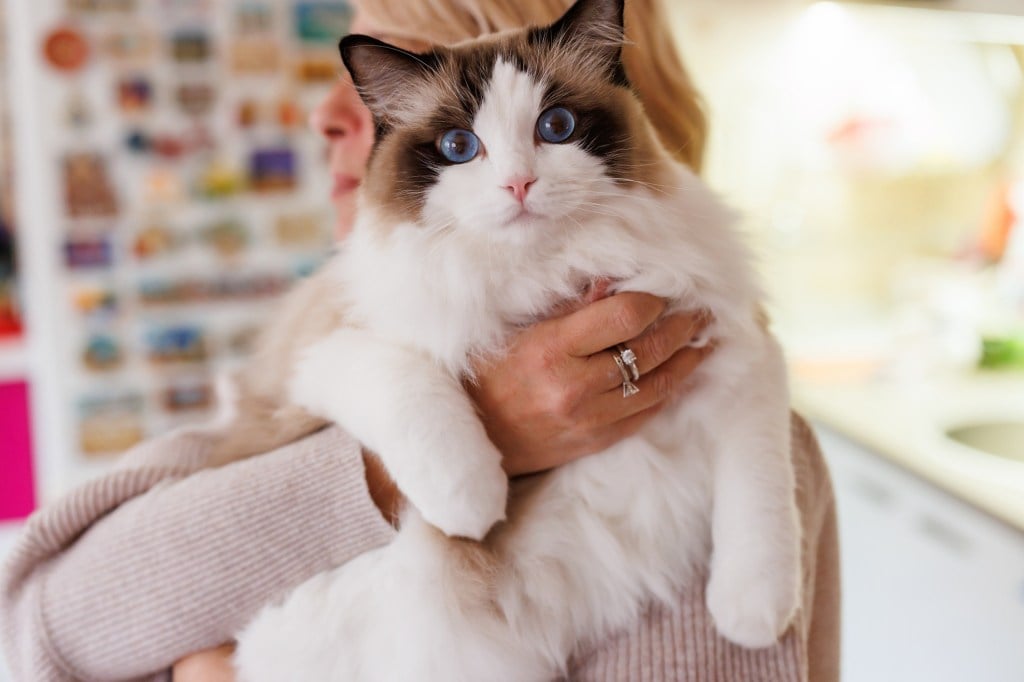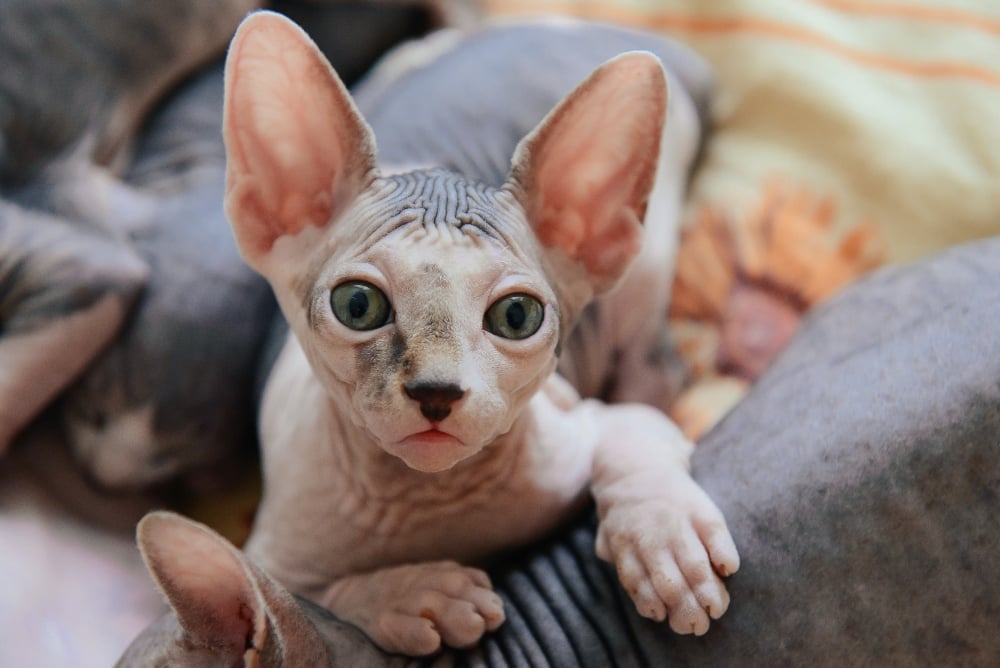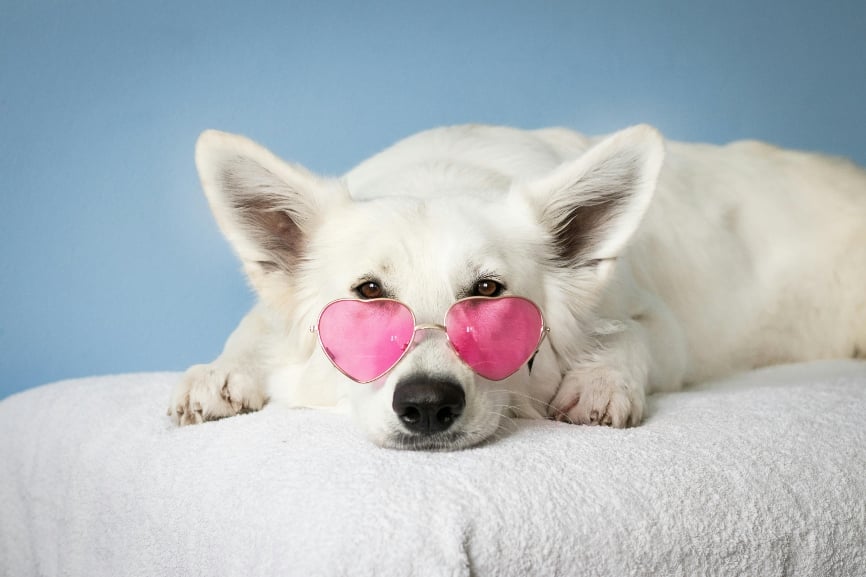Table of Contents
The Siamese cat is talkative, curious, and great for families with children and/or other pets. Here are some basic facts:
- Weight: 8-15 pounds
- Life Expectancy: 15-20 years
- Temperament: social, intelligent, affectionate
- Energy Level: High
- Ease of Training: Moderate
- Grooming Requirements: Low
Siamese cat personality traits
Siamese cats want to be the center of attention. If they are left alone for too long, they could become anxious or upset. Adopting a second cat can help keep these feelings at bay. They generally get along with children and other pets.
No matter where their owners are, this breed must be nearby. They are famous for their “talking,” filling the house with sounds all day. People seeking a quiet, calm pet should avoid this breed. In addition to being a furry chatterbox, this intelligent cat is also extremely affectionate and fond of its human companion. They’ll follow you from room to room, snuggle up with you on the couch or bed, and quickly become your best friend.
Because of their intelligence, with some patience, they can be trained. Some will walk on a leash like a dog.
Siamese breed physical description
Physically, Siamese cats are well-known for their exotic appearance and agile, athletic bodies. They have gorgeous cream, caramel, and charcoal silky coats and bright blue eyes that make them truly striking. Females weigh between eight and 12 pounds, and males weigh between 10 and 15 pounds.
History of the Siamese breed
Siamese cats have a long and detailed history. The breed is so old, they can be traced back hundreds of years. Tamra Maew, a Thai poetry book written around the 14th century, includes an illustration featuring the breed. In 1878, a Siamese cat was sent as a gift to Lucy Ware Webb Hayes, wife of U.S. President Rutherford B. Hayes. Named “Siam,” she is known as America’s first Siamese cat.
Despite their long lineage, they remain a favorite, known to people around the world. In 1961, the strange behavior of two Siamese cats at the Dutch Embassy in Moscow, Russia, led to the discovery of 30 microphones hidden in the walls. Queen Victoria was a fan of the breed, Queen Elizabeth II and Prince Phillip received a Siamese kitten as a wedding gift, and Elizabeth Taylor loved them so much she had some for herself and gifted one to James Dean.
Today’s modern-day Siamese cat has been bred to be particularly long and slender with extra wide ears and an elongated, tapered tail. This differs in appearance from the traditional Siamese cat, which still exists and is referred to as “old-style” or “classic” Siamese, “Thai Cat” or “Applehead” (for its big, round head and plumper frame).
Grooming requirements for Siamese cats
Because these cats have a short coat, grooming is only necessary once or twice a week. Nails should be trimmed every 10 days. Siamese cats come in a variety of colors, including blue, chocolate, cream, and red.
Health concerns for the Siamese cat
A few health conditions are more common in Siamese than in other cat breeds. They include:
- Progressive retinal atrophy
- Bladder stones
- Asthma and bronchial disease,
When a Siamese cat has progressive retinal atrophy (PRA), they suffer from poor eyesight. As they age, it worsens considerably. Eventually, they go completely blind. There is no cure and no treatment options.
Bladder stones are mineral deposits that grow inside an animal’s bladder. The “stones” rub against the walls of the bladder and block the urinary tract, making urination difficult and painful. Cats with this problem should have access to plenty of water and eat a special diet recommended by a vet.
Another issue to watch out for is amyloidosis, a disease caused by protein deposits in organs—the liver, specifically, for Siamese. Symptoms include low energy and appetite, abdominal swelling, weight loss, and excessive thirst and urination.
Fun facts about Siamese cats
- Siamese cats have what’s called a “pointed coat,” which refers to standard points of color in its fur. Typically, their bodies are light in color, and the dark “points” occur at their tail, legs, face, and ears.
- There are a number of myths and legends surrounding the Siamese cat. One such story says that a royal princess who loved to swim would use her beloved Siamese cat’s tail as a ring holder while in the water. The story goes that the cat would bend its tail to prevent the ring from falling off, which is where today’s modern-day Siamese cat gets its kinked tail.
